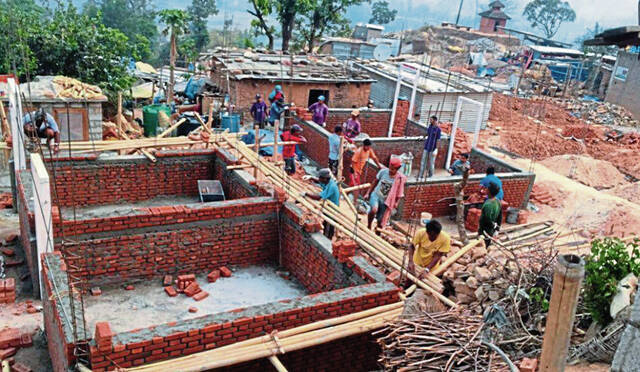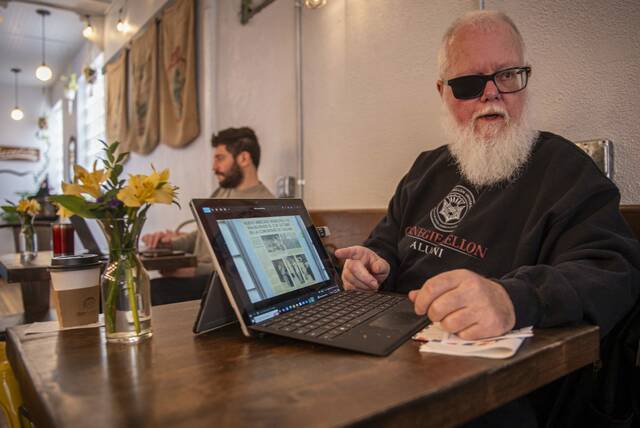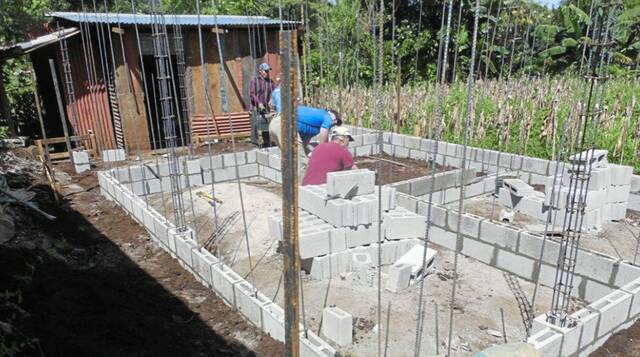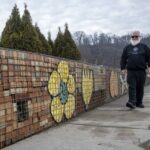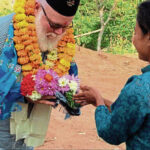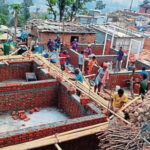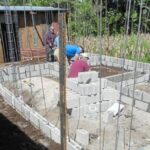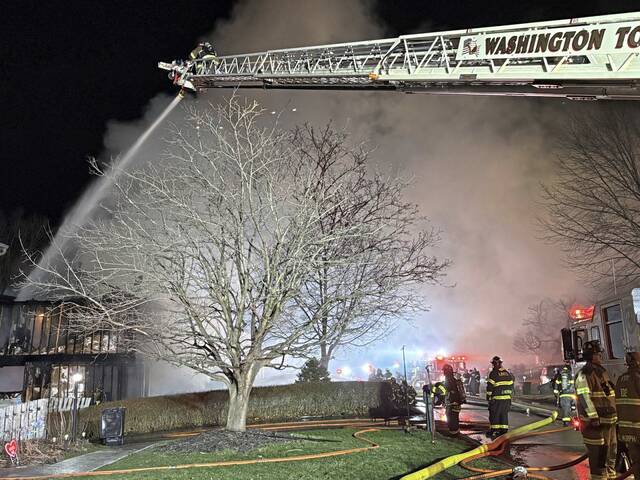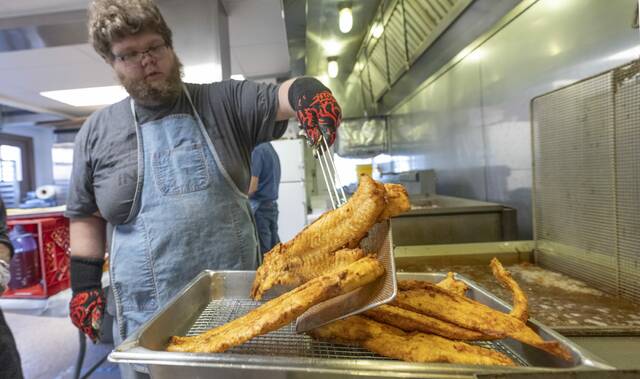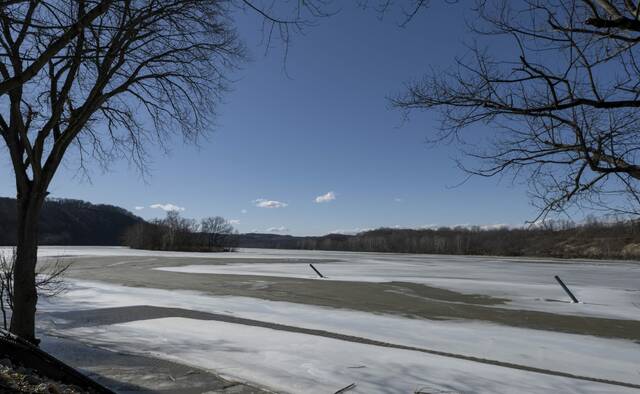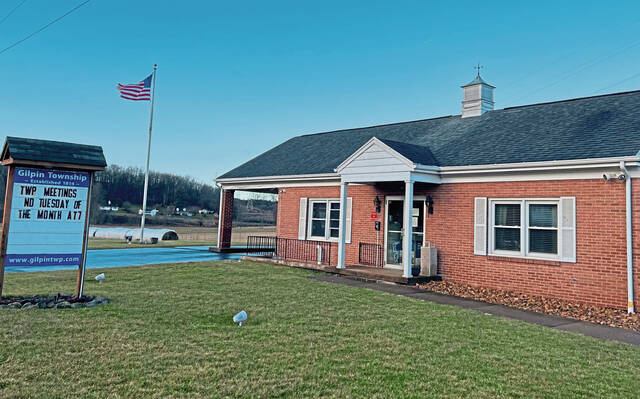Dennis Mialki enrolled in the Peace Corps in 1978 and found himself — at 22 — as the city engineer of Siguatepeque, Honduras, a farm town in the mountains of Central America.
The Tarentum resident spent two years engineering roads, building kindergarten classrooms and establishing a building code.
“I was three months out of college at Carnegie Tech and was an idealist,” said Mialki, 69. “I thought we could change the world.
“Turns out, we could make a big dent.”
The Peace Corps, a federal agency established by President John F. Kennedy in 1961, has taken Mialki across the globe to enhance the lives of some of the poorest people on the planet.
Peace Corps volunteers sign on for two-year stints to help people in developing countries. Typically college graduates, they help in areas like education, health and economic development.
The Peace Corps marks its 64th anniversary today.
Born in New Kensington and raised for a short time in Harrison’s Natrona neighborhood, Mialki graduated from Deer Lakes High School in 1973.
“I didn’t grow up rich, but I always wanted to give back to people around the world,” he said.
Joining the Peace Corps was on his radar since childhood. He pursued a degree in civil engineering because the skill is applicable in the most remote parts of the globe, he said.
Mialki had never been on an airplane when he was given the choice to spend two years in the Philippines, Honduras or Nepal.
An 11-week training program prepared him for immersion in Spanish-language culture before he arrived in San Pedro Sula, the fifth largest city in Honduras, to serve as its first municipal engineer.
Mialki moved to Siguatepeque, where he designed bridges, supervised construction of a slaughterhouse and surveyed new streets in underdeveloped sections of the city.
“During his service, Mr. Mialki was able to instill an awareness of the need for accurate structural plans for multistory buildings in the city of San Pedro Sula,” according to a letter from the Peace Corps. “Before his arrival, structural plans were not required to obtain a building permit.”
During his time there, Mialki also worked to bring potable water to Buenos Aires and designed a 55-meter pedestrian suspension bridge in La Sabana and a community center in San Antonio.
“I got 15 years’ worth of experience in two years,” Mialki said. “And I did it all in Spanish.”
He added: “You learn confidence. You have to get the job done, so you figure it out.”
Since 1961, more than 240,000 Peace Corps volunteers have worked in 60 countries.
In the current federal fiscal year, the organization narrowly avoided a budget cut. Originally, its $430 million federal appropriation was slated to be cut by $20 million. Lobbying by lawmakers, however, produced a bipartisan amendment to the nation’s budget that restored that money.
“Thousands of Americans serve in the Peace Corps every year, and reducing their funding would prevent them from accomplishing their critical mission,” said Rep. Michael Lawler, R-N.Y., during debate on the funding amendment last year. “I’ve heard from many constituents about their personal experiences with the Peace Corps, and they can tell you as good as anyone how impactful serving has been.”
Mialki himself urged U.S. Sen. John Fetterman and then-U.S. Sen. Bob Casey to restore the money.
Mialki recommends the experience for anyone with a spirit for adventure and community service.
His passion for helping stuck with him long after he returned to the U.S. and spent four decades as a commercial construction manager.
He designed Kroger grocery stores in Nashville and jewelry stores in North Carolina, all the while remaining active in global volunteerism before retiring in 2014. He’s settled back into his parents’ former home along West Eighth Avenue in Tarentum.
In Puebla, Mexico, he worked with Habitat for Humanity’s Carter Work Project in 2004 to build 75 homes in five days using 2,000 volunteers from 35 countries — with former President Jimmy Carter in the labor pool.
He later supervised Carter on a housing project in Detroit and continued working on Habitat sites in Lonavala, India, and Chiang Mai, Thailand.
In 2010, Haitian officials sought Mialki’s help after an earthquake there killed more than 220,000 people.
“They asked me to figure out why all their houses fell apart,” he said.
In 2012, he worked with Engineers Without Borders on a project in Tingo Pucara, Ecuador, to design a gravity-fed system to help people who formerly had to walk 90 minutes for clean water. Mialki said a 2020 study showed a reduced infant mortality rate that city officials credited to the safe drinking water.
Since 2016, he has served as vice president of programs for Engineers Without Borders, through which he mentors students at the University of Pittsburgh and Ohio State.
He also is an adviser for the agency All Hands and Hearts, working on a roof-rebuild program in Puerto Rico and the U.S. Virgin Islands.
Mialki, who worked with the Red Cross at a Tampa, Fla., shelter last year after Hurricane Milton, is a virtual tutor with the Latino Community Center of Pittsburgh and is past president of Allegheny Valley Habitat for Humanity.
Locally, he led a joint project with advocacy group Natrona Comes Together to build a protective wall around the Natrona Community Garden.
“Dennis approached solving any engineering issues with a friendly, professional and ‘can-do’ attitude,” said Bill Godfrey, president of Natrona Comes Together. “With years of global experiences, no obstacles appear to stop Dennis.
“His intelligence and creativity enable him to feel any problem can be overcome. Wherever he goes, Dennis’ main goal is to make lives better.”
Mialki said the Peace Corps is still relevant, maybe even more so, today.
“It gave me an awareness of the needs of the rest of the world,” he said. “It’s the realization, at the end of the day, that it’s not how big your house is or how expensive your car is.
“What matters is what you’ve done for other people.”





